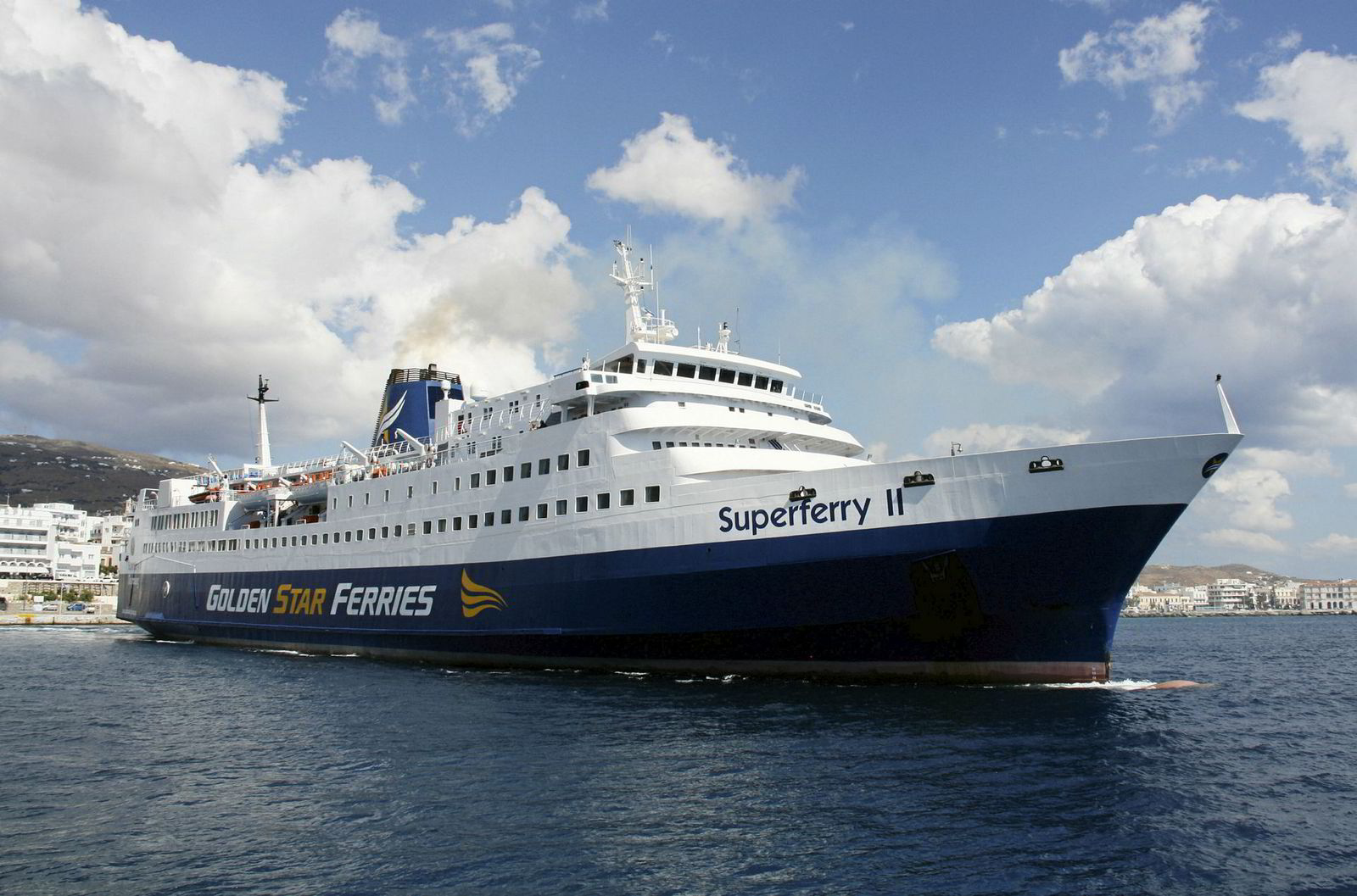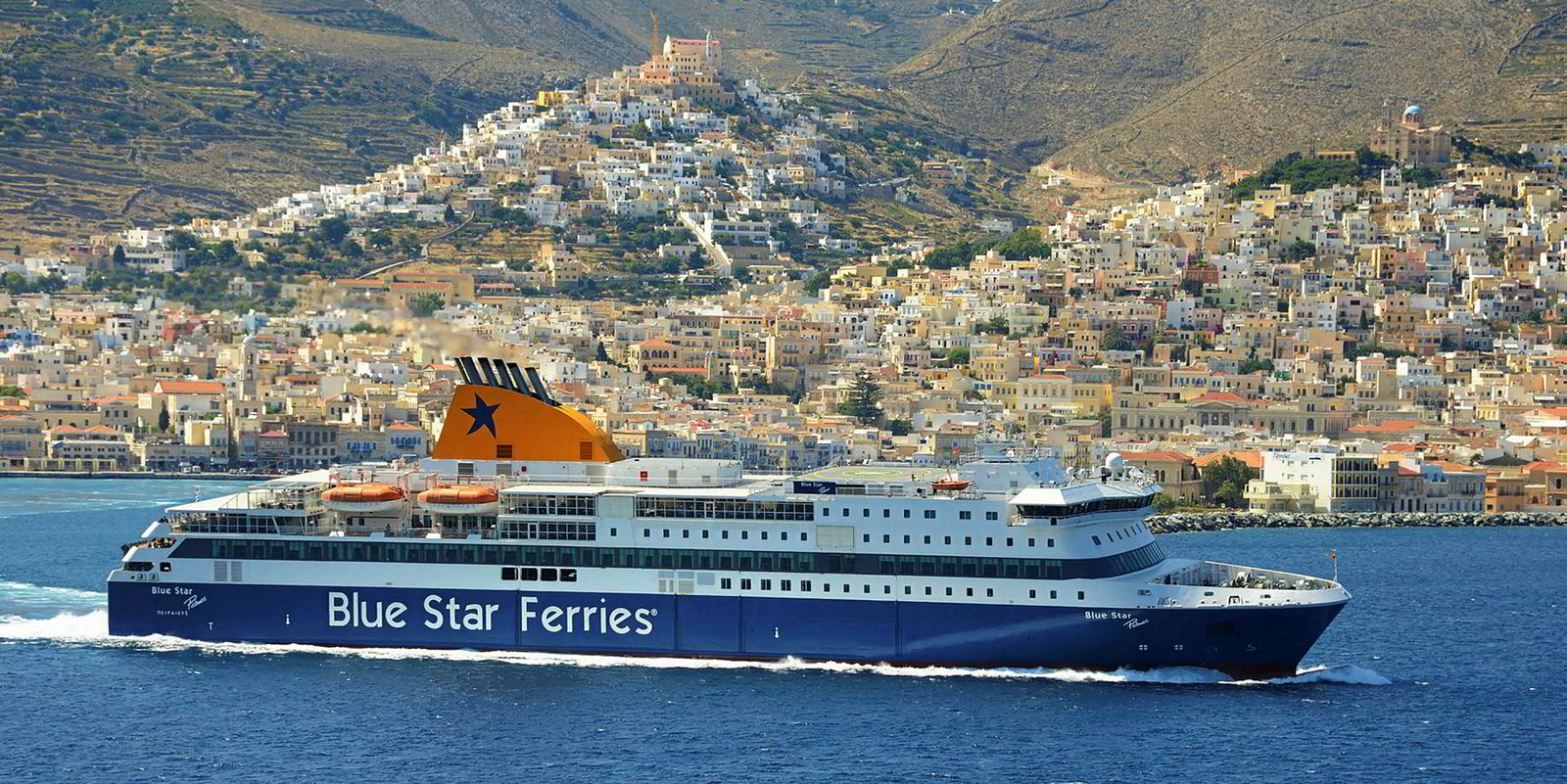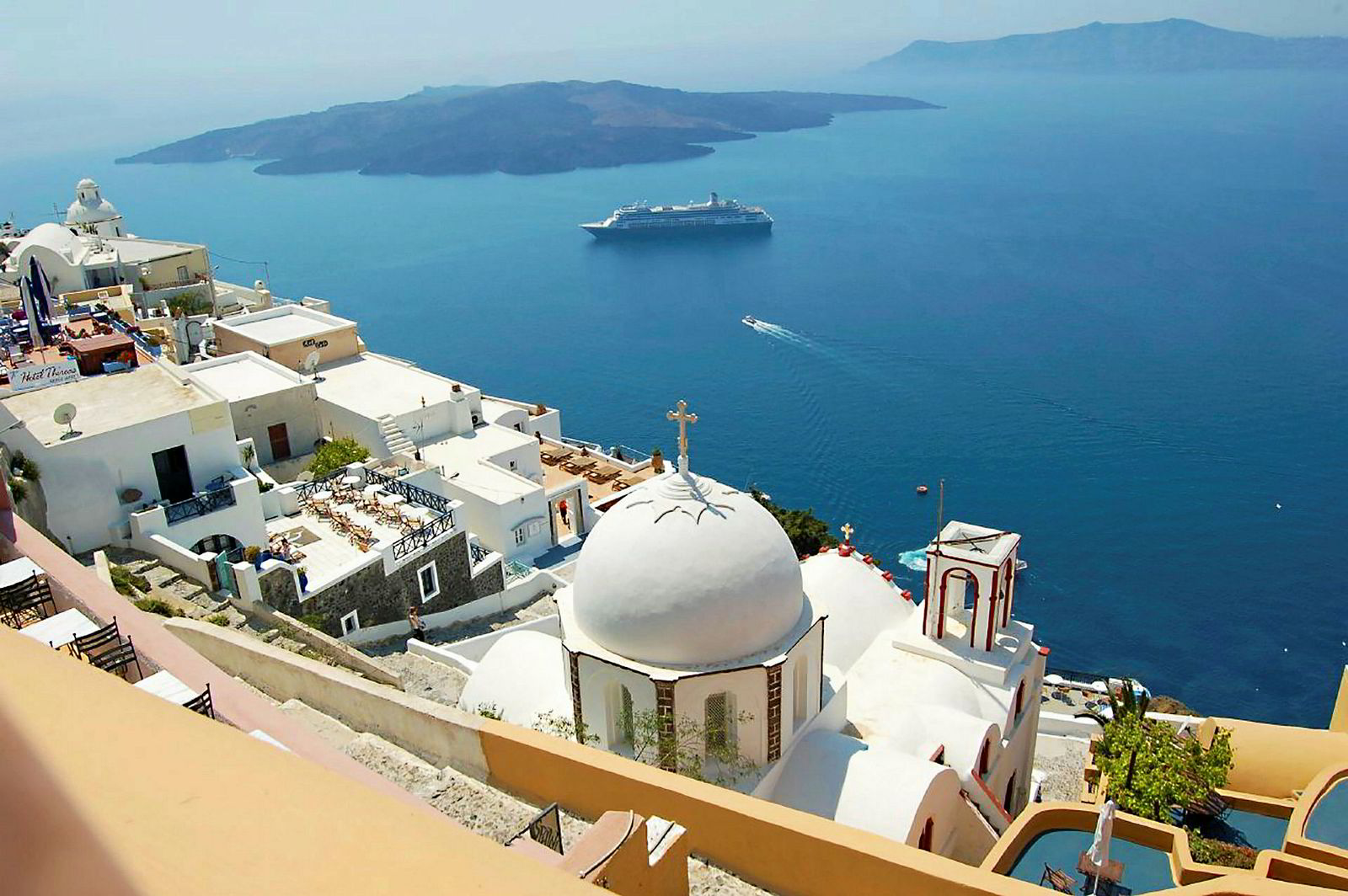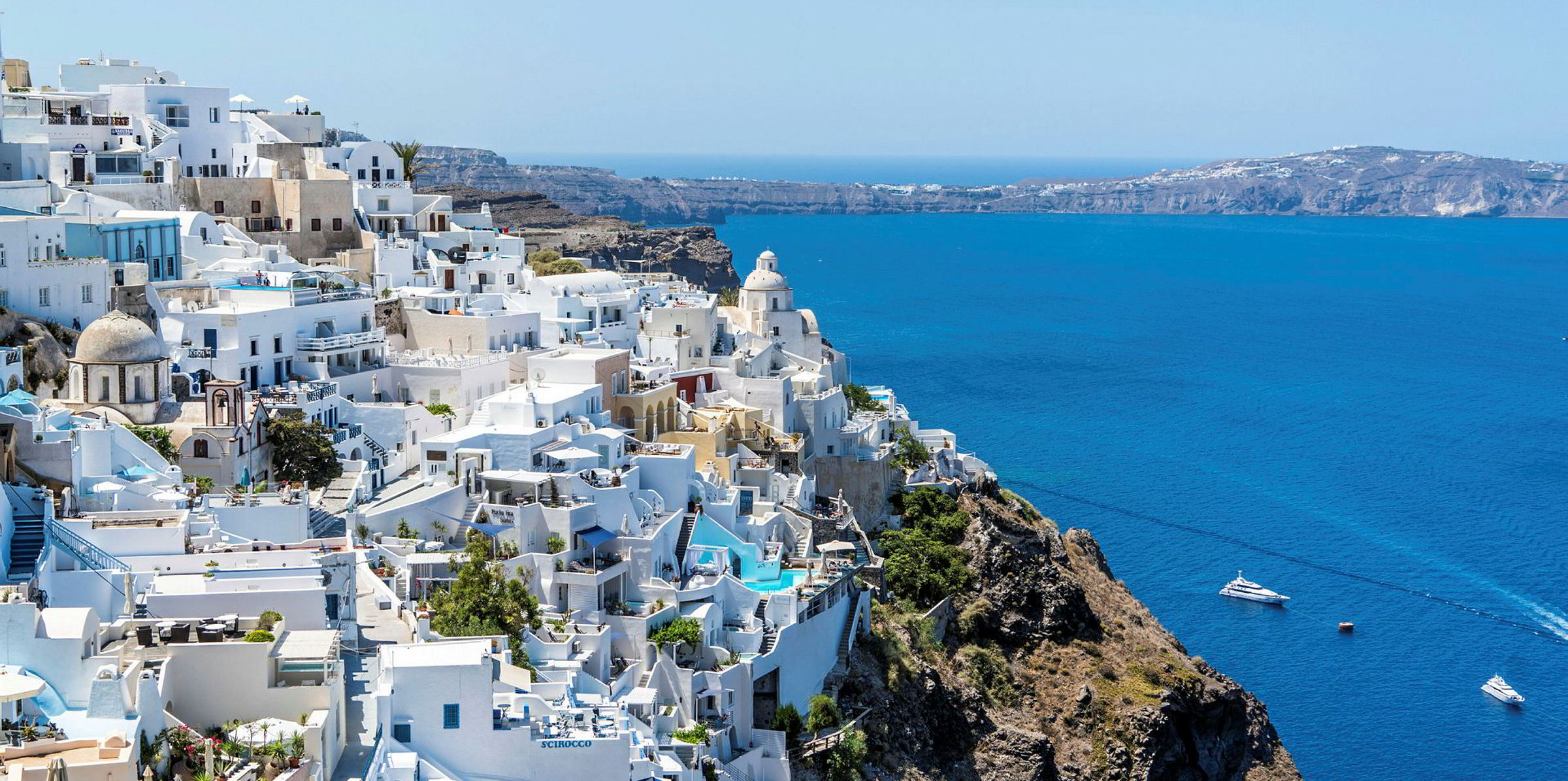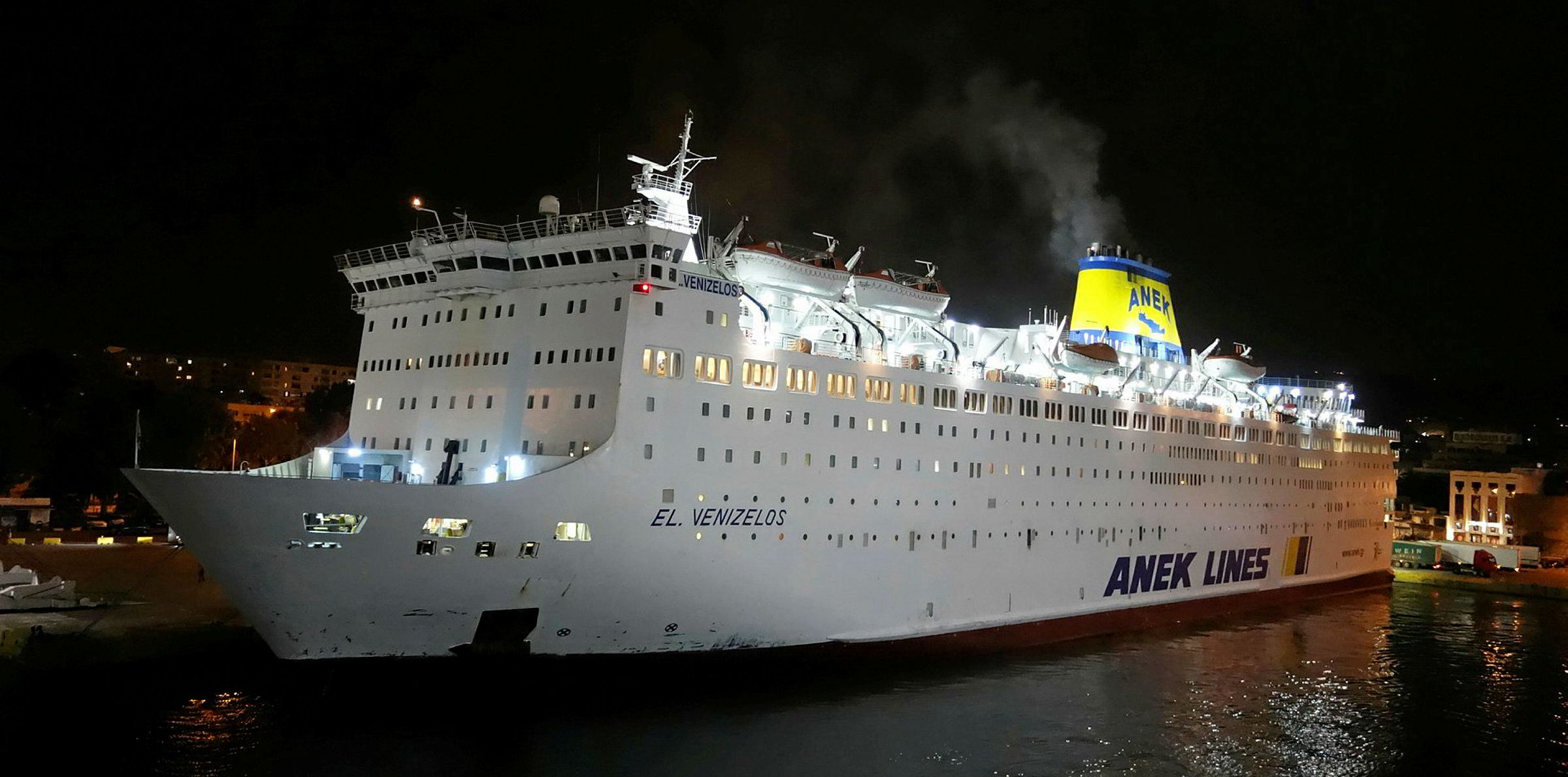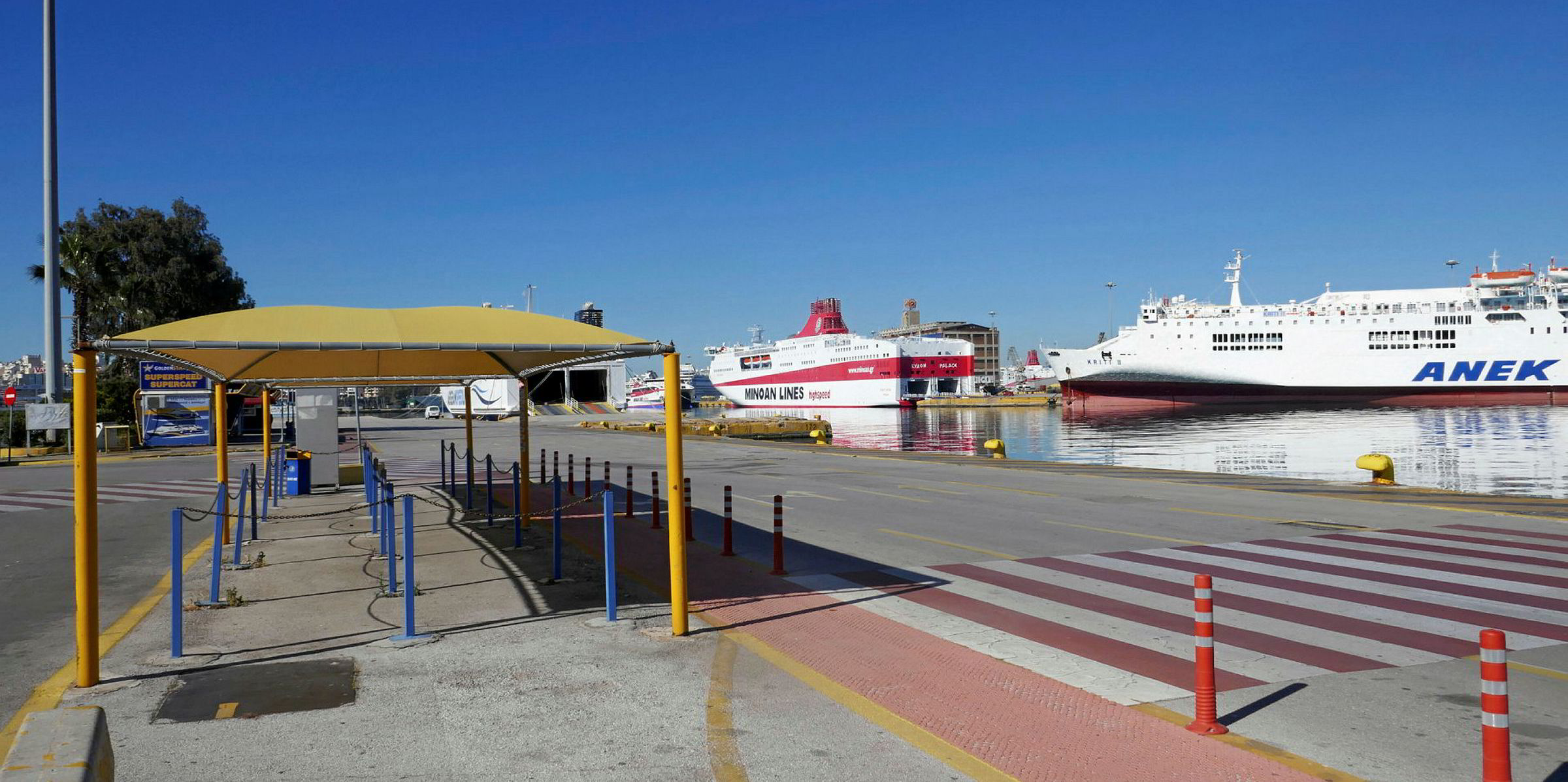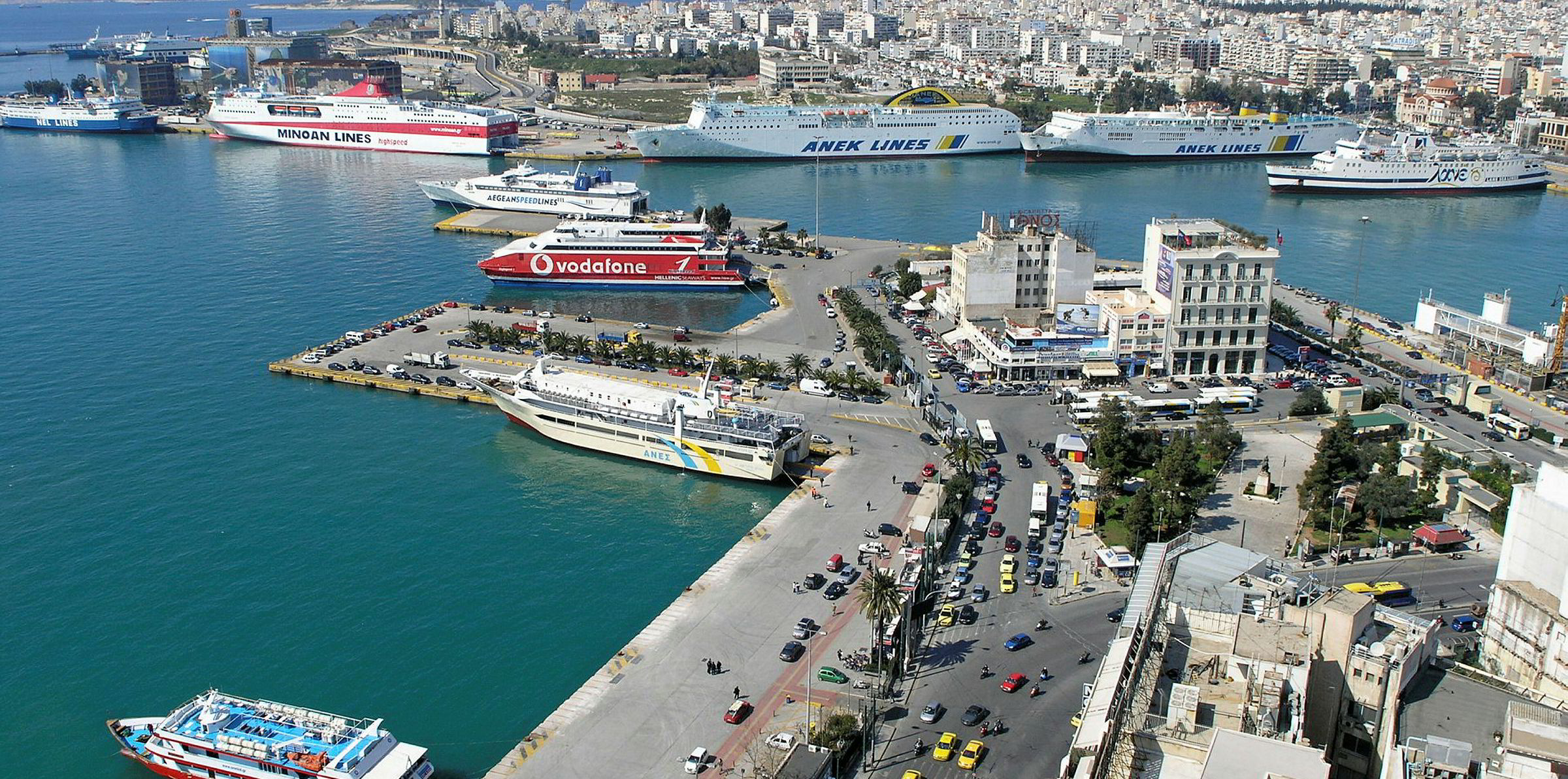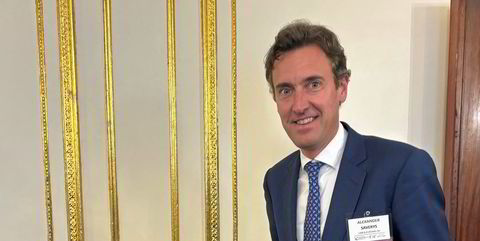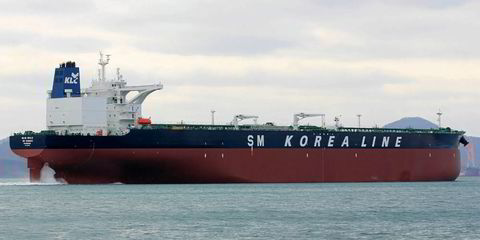The coronavirus pandemic could not have hit at a worst time for Greek ferry companies.
Just as they were crossing to profits after years of losses and had begun spending heavily to adjust to new bunker rules, Covid-19 pulled the rug from under their feet.
Lockdowns, a lack of tourists and capacity constraints to ensure social distancing on ships will cause passenger numbers to drop by half this year to 8.9m, XRTC Business Consultants estimated in its annual report on the sector published last week.
“There’s no way there will be profits this year, except for a few small companies operating entirely on state-subsidised routes,” said the George Xiradakis-led outfit, which has been monitoring the scene for 20 years.
Scrubber spending
“Firms’ very economic existence is at stake.”
Only two ferry companies — Attica Group and ANEK Lines — are still listed on the Athens Stock Exchange. Neither has yet published quarterly results for this year.
When they do, the figures will probably look ugly. “The winter of 2020-2021 will be particularly difficult, since revenue from the first half and the summer will not suffice to cover operational costs,” XRTC said.
Falling revenues apart, some of the companies have been spending on scrubber installations. Attica raised €25.9m ($30.6m) in bonds last year to make some of its vessels compatible with new bunker rules brought in by the International Maritime Organization.
Rival Minoan Lines also installed scrubbers on three of its ships. Minoan, however, will most likely cope with the costs more easily, given the strong balance sheet of its parent group Grimaldi, Europe’s biggest ferry operator.
Companies such as ANEK or Seajets use low-sulphur fuel and, therefore, stand to gain from falling bunker prices. Slumping passenger numbers, however, will most likely outweigh any such benefits.
“They [Seajets] are the king of fast boats, so one would expect 2020 to be the ideal year for them, given the low fuel prices,” XRTC argued. However, “the abrupt fall of tourism traffic in 2020 will hugely hit operations, considering that the company relies a lot on carrying holidaymakers between islands”.
Greece suffered far less from Covid-19 than other European countries, with a little over 200 deaths reported so far. The virus, however, has discouraged hundreds of thousands of foreign tourists from visiting the country.
Domestic tourism is hit as well, as local Covid-19 clusters keep flaring up. On 6 August, severe traffic restrictions were imposed on the island of Poros, a popular resort in the Saronic Gulf, just off Athens,
Despite all the problems, Greek passenger shipping has one big thing going for it: it is too important to be allowed to fail.
Islands depend entirely on commercial ships for fuel and food. Of the 95 inhabited islands regularly approached by the 109 ferries operating in the country, only 25 have an airport.
Banks reluctant to pull the plug

Islands’ dependency on ships makes Greece Europe’s biggest market for coastal passenger shipping, accounting for about 15% of the continent’s total, according to XRTC, on a par with Italy.
It is telling of the vital role coastal shipping plays that ferry owners in Greece were among the few to enjoy a relaxation of anti-coronavirus measures. To allow ships to carry more people on board, the government has increased the capacity ceiling from 65% to 85%.
More importantly, Greek banks are reluctant to pull the plug on ferry companies, even when they are aching under huge debt loads.
ANEK especially depends on banks’ cooperation to roll over debt. ANEK’s “short-term bank liabilities, in combination with the pandemic, raise serious questions as to the company’s viability”, XRTC said.
Lenders have been playing ball, so far. Three large Greek banks holding ANEK bonds agreed to convert them into shares earlier this year, injecting €10.8m into the company’s capital.
At the same time, banks appointed New York business consultancy AlixPartners “to assess the company’s liquidity prospects” in light of plans by Greek and European authorities to support the ferry industry after the pandemic.
Selling down stakes
The formulation suggests that any forthcoming state subsidies, over and above the limited furlough schemes adopted so far, will be the one big factor in banks’ thinking as to what they will eventually do with their ferry stakes.
Greek banks, which are themselves suffering from the after-effects of their country’s debt crisis, are keen to sell down those stakes to raise cash for their core activities.
Piraeus Bank, which owns large holdings in Attica Group and ANEK, is the key player in that respect.
Greece stands to receive €32bn from the European Union’s coronavirus recovery fund. If even a small part of that flows to ferry companies, speculative investors might be tempted to enter the business.
The scene sorely needs them. “The fleet has grown dangerously old,” XRTC said.
